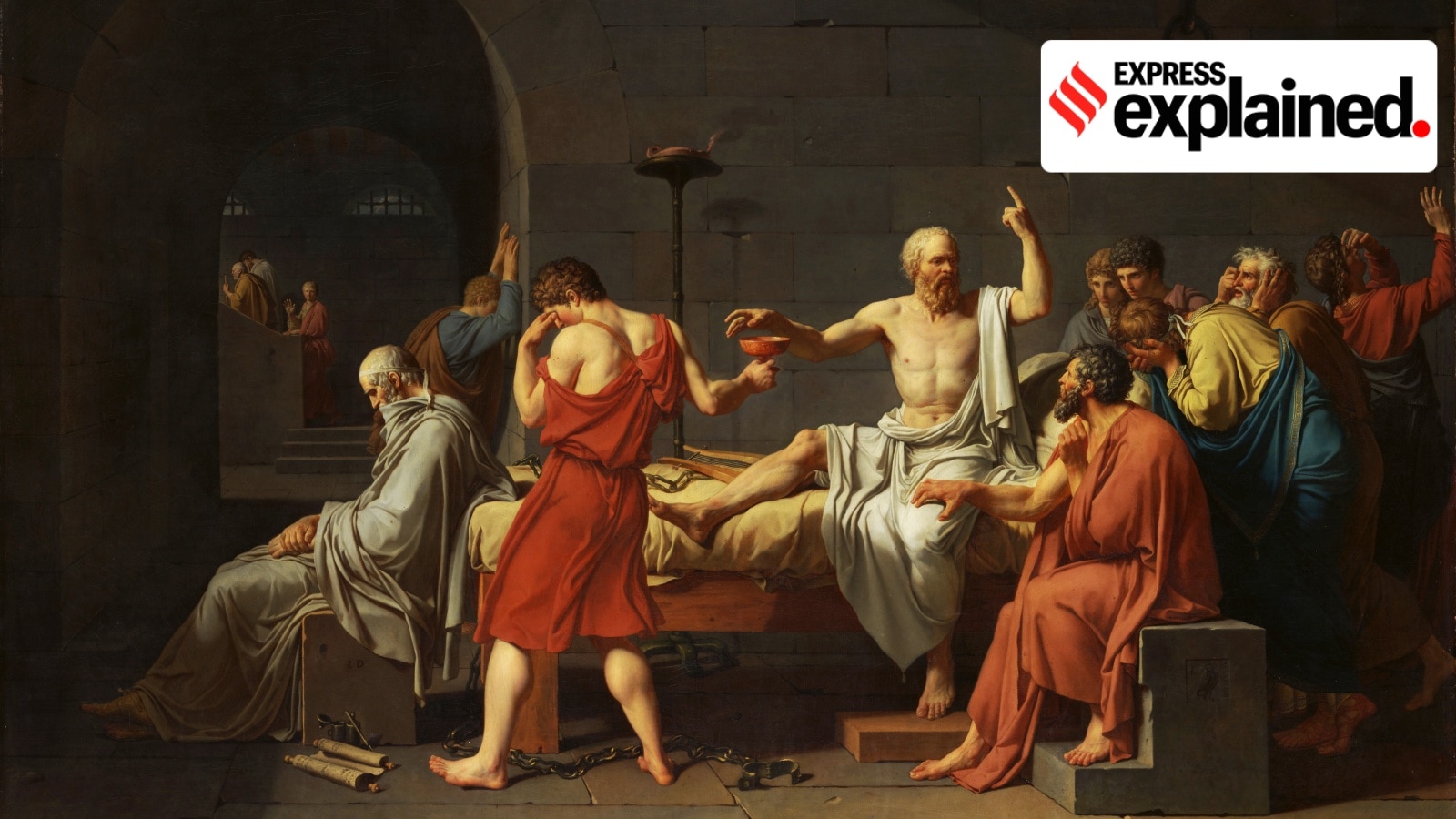Ancient Greek philosophy is most commonly associated with the trinity of Socrates, Plato and Aristotle. Among them, what we know about Socrates mainly comes from the writings of his student Plato, spanning themes such as Democracy, Governance, Beauty, and life itself.
Plato discussed these complex subjects by depicting dialogues between Socrates and various other characters in his writings. At age 70, Socrates is believed to have been sentenced to death for the “crime” of questioning the known wisdom of the time and corrupting the youth through his novel ideas.

Among the most well-known quotes attributed to Socrates is “An unexamined life is not worth living,” said during his trial by the jury of the city of Athens. The need for introspection and meditative contemplation, therefore, has been stressed for millennia.
But why exactly is this, and what are some arguments against it? We explain. Also, quotes related to philosophy and by notable figures form an important component of the UPSC Civil Services Examination (CSE).
The context
Plato (428/427 BCE) wrote about his teacher Socrates, who is said to have lived in the city of Athens. At the time, Athens was a state that had one of the first known forms of democracy, where citizens – those owning land, men, and those who were not slaves – had the right to participate in common decision-making.
They would meet at the town square, the Agora. However, Socrates was critical of such a system because it allowed people to be swayed by orators who lacked logic and substance and who were keen to appeal to people’s emotions instead.
Socrates’s criticism made him unpopular, as did his disdain for blind faith in the Greek gods. He was accused of multiple crimes and given the option to go into exile. During his trial, Socrates is believed to have rejected this and spoken about the importance of questioning things. He was eventually sentenced to death by drinking poison.
What the quote argues
Story continues below this ad
Simply, it states that one’s life needs to be evaluated, actions and events need to be thought over, and it is these processes that make life worthy of living. In doing so, Socrates emphasises ethics, logic and morality as some of the barometres through which actions are judged.
On the face of it, this seems reasonable. Thinking about our actions and thoughts can lead to questioning our behaviour and course correct when required. When we think over larger aspects of the life we live, say why we act a certain way, or why we make certain assumptions, we can also challenge our own biases. It could help propel questioning of the larger systems that we observe around us – inequality, injustice, enmity, and so on.
On a more personal level, indulging in such thinking often also means that we can gradually understand our ethics and morality better, helping us navigate life and decision-making.
Examining the quote
Socrates’ quote has been critiqued from a range of perspectives over time. John J Stuhr, a professor of Philosophy at Emory University, wrote in The Journal of Speculative Philosophy in 2016 that there are three problems with the claim that the unexamined life is not worth living.
Story continues below this ad
Firstly, the intellectual effort involved in leading an examined life “may seem to involve too much work and hardship to be the only worthwhile life”, he writes. The saying “ignorance is bliss” touches upon this view in one way, that acquiring knowledge is also hard work.
Also, upon examining, we may come to conclusions about our negative traits or a situation where our behaviour was deplorable, or that the world or our circumstances themselves are deeply unfair and difficult. In that situation, mere examination will not provide comfort and could push a person towards a sense of cynicism.
Secondly, an examined life may be too unclear a concept and not everyone will have the tools to examine it meaningfully. In that sense, the whole exercise will not have much tangible benefit for that person. Or, the examination itself may rely too much on either emotions or rationality, leading to unsatisfactory conclusions.
Other critiques also discuss the difficulty of self-examination. We, as humans, are deeply coloured by our existing viewpoints and may find it impossible to be fair judges of our own lives. Many people may lack the resources or time to engage in such thinking. On the other hand, an overemphasis on analysing one’s own life may border on narcissism or an unhealthy obsession with the self. Particularly, only thought and no action would not be helpful for someone already feeling anxious and lost.
Story continues below this ad
Therefore, while the essence of Socrates’s view holds resonance, especially in a world today where multiple sources of information claim to be correct and “right”, its problems of practicality and lack of specificity may be some hurdles in its practice.








































